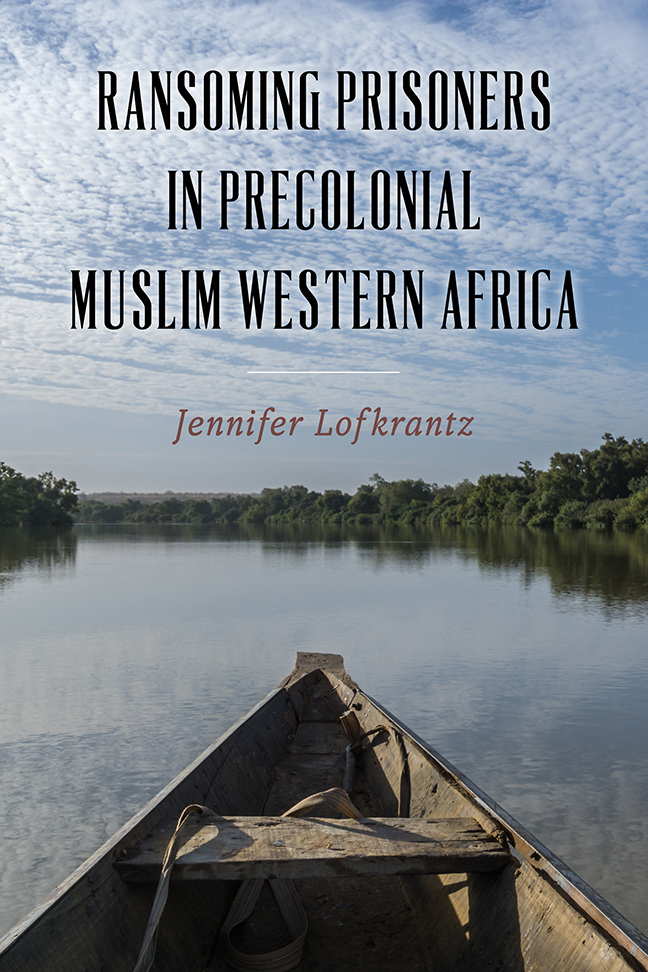Book contents
- Frontmatter
- Contents
- Tables
- Acknowledgments
- Introduction
- One Islamic Discourse on Slavery and Ransoming before 1800
- Two The Policy and Practice of Ransoming in the Maghrib
- Three Jihad, the Sokoto Caliphate, and Ransoming
- Four The Jihad of ‘Umar Taal and Its Ransoming Nonpolicies
- Five The Negotiation and Practice of Ransoming Prisoners
- Conclusion
- Bibliography
- Index
One - Islamic Discourse on Slavery and Ransoming before 1800
Published online by Cambridge University Press: 10 January 2024
- Frontmatter
- Contents
- Tables
- Acknowledgments
- Introduction
- One Islamic Discourse on Slavery and Ransoming before 1800
- Two The Policy and Practice of Ransoming in the Maghrib
- Three Jihad, the Sokoto Caliphate, and Ransoming
- Four The Jihad of ‘Umar Taal and Its Ransoming Nonpolicies
- Five The Negotiation and Practice of Ransoming Prisoners
- Conclusion
- Bibliography
- Index
Summary
In Taj al-Din yajib ‘ala-mulūk, the treatise he wrote at the end of the fifteenth century for Sarkin Muḥammad Rumfa of Kano, Muḥammad al-Maghīlī advised that a good Muslim King preserves a surplus in the treasury for ransoming captives. Indeed, issues surrounding legal and illegal enslavement and remedies for illegal enslavement, such as ransoming, had been debated in Muslim West African societies since at least a century before al-Maghīlī wrote his treatise. Subjects of debate included who was considered to be a Muslim, the onus for proving freeborn Muslim status, and the fate of illegally captive individuals. The issue of ransoming, as a remedy for potential enslavement, was closely linked to the question of captivity and enslavement. Captivity could result in both the ransoming of the captive and the enslavement of the captive as well as the execution, free release, and prisoner exchange of the captive. Therefore, the discourse on ransoming was strongly affiliated with the debate on who could and could not be legally enslaved and particularly with intellectual discussion on remedies for illegal captivity. The discourses on captivity, legal and illegal enslavement, and remedies for illegal enslavement are important as they provided the structure within which policy and practices were formed. A full understanding of captivity, ransoming, and enslavement policies and practices requires an understanding of the intellectual context from which they were derived.
The fact that slavery was being debated in West Africa is not surprising since the trafficking of enslaved people across the Sahara and across the Atlantic from West Africa increased starting in the seventeenth century. Due to the sources available it is difficult to estimate the number of enslaved Africans from south of the Sahara that were sold across the desert. The number of enslaved people from south of the Sahara trafficked throughout the trans-Saharan trade, including the eastern Sudan, are thought to have jumped from an estimated 5,500 people per year in the sixteenth century to an estimated 7,000 people per year in the seventeenth and eighteenth centuries. The central Sudan and in particular Bornu and the Hausa states provided slaves for the Tripoli and Tunis markets whereas the western Sudan supported the Algiers and Moroccan markets. To meet demands for enslaved labor, in the seventeenth century, Morocco was importing approximately 2,000 enslaved people per year, Algeria 500 per year, and Tunisia 800 per year.
- Type
- Chapter
- Information
- Ransoming Prisoners in Precolonial Muslim Western Africa , pp. 23 - 52Publisher: Boydell & BrewerPrint publication year: 2023



